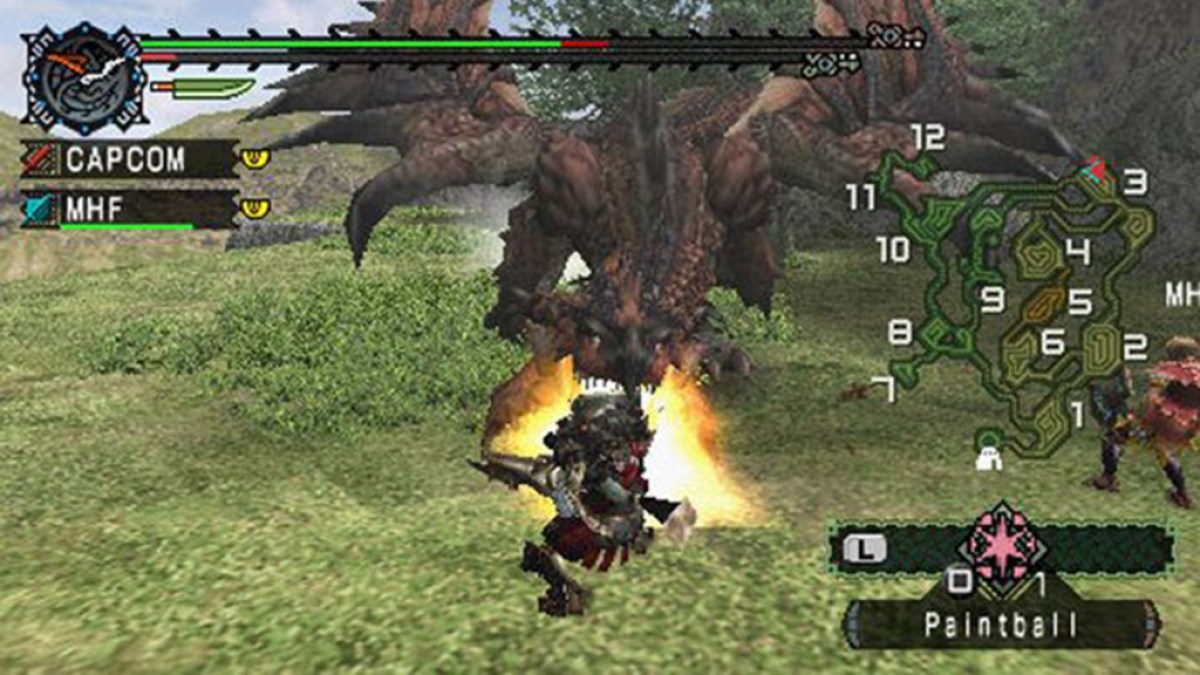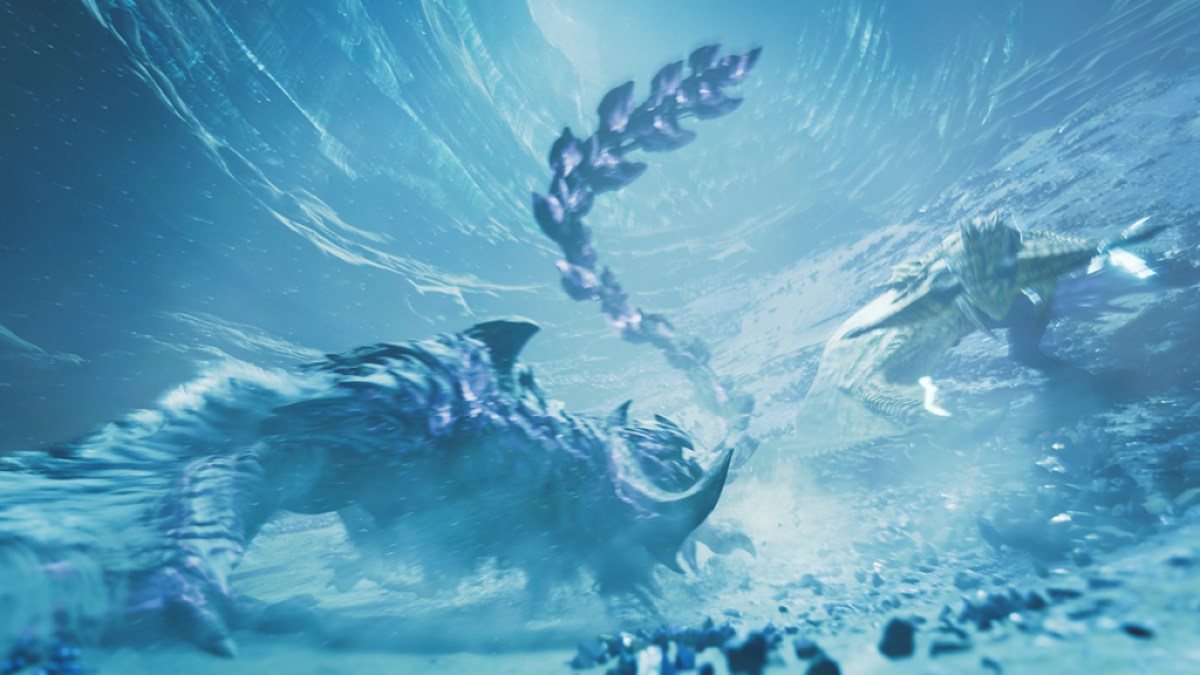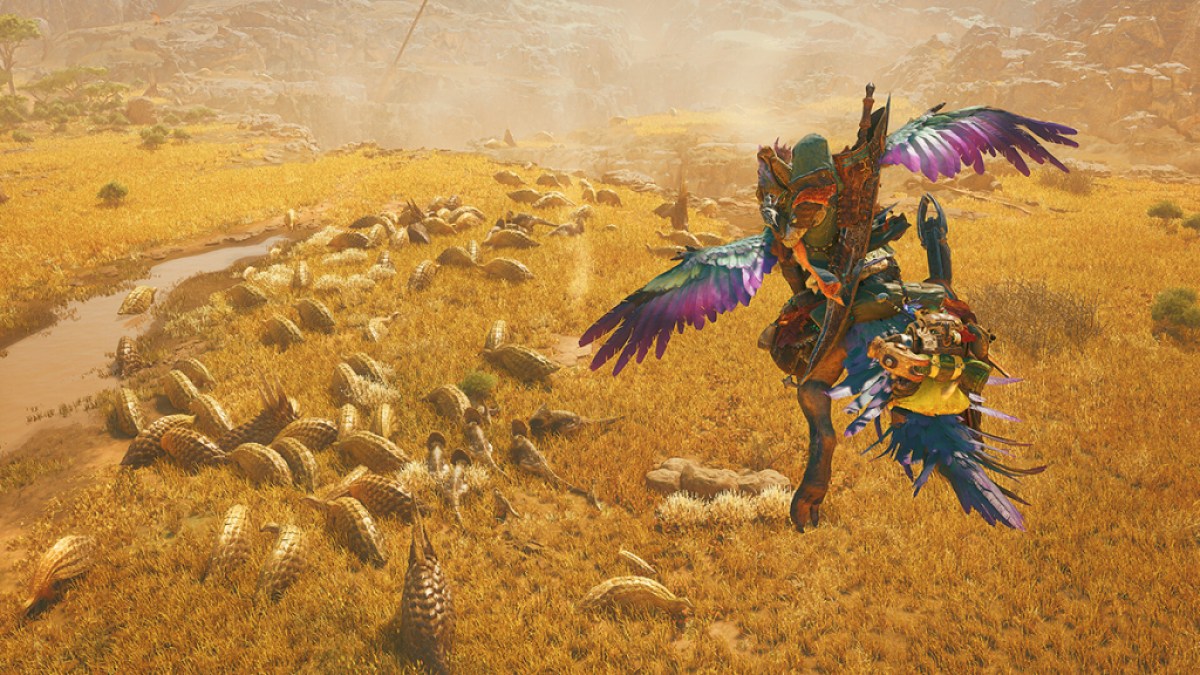Monster Hunter games used to be harder, but that doesn’t mean they were better too. As we prepare to venture into Wilds, perhaps it’s time to reexamine where the long-running series has been and reflect on what we want from it moving forward.
During its early days, aspiring hunters spent more time aimlessly looking for monsters than hunting them down. Likewise, the town-adjacent tasks (yes, I’m talking about the farms) consumed a fair amount of our time and soon became a chore we had to endure to maximize our grind of valuable resources. What about tracking the aforementioned monsters out in the field? Ah, you sweet summer child, we had none of that until 2018’s Monster Hunter: World. Have I told you that you had to throw paintballs at the animals to keep track of their location every 15 minutes or so too?
I got into the series thanks to Monster Hunter Freedom on the almighty PSP. While its ambitious scale and graphical fidelity was impressive for a portable device back in the day, it pushed me away several times because of how rough and time-consuming every little bit of the gameplay loop felt. Mind you, everything clicked together as well as it does today once you got into the meat and potatoes of Monster Hunter, but those early games were anything but accessible.

This isn’t an in-depth retrospective of the series, so let’s just fast-forward to World and Rise, the two latest entries in the series (at least until late February). They were arguably responsible for making the series uber-popular after an upward trend during its huge Nintendo-exclusive era, and it all ultimately came down to making the time between battles more bearable. Open, seamless maps translated into a better overall flow to the hunts, and all the little improvements made to resource gathering and the investigations leading to the monsters piled up to make Monster Hunter more approachable than ever before.
None of that can save you from a proper walloping if you’re unprepared and/or your head isn’t where it should be. Monster Hunter hasn’t suddenly become ‘easy’ or ‘too watered-down’ in any way. In fact, I’d argue the series is currently the best it’s ever been even if entries like 4 Ultimate packed a ridiculous amount of content. After the Wilds beta that took place last November, it all seems to be venturing further into that same direction of easing newcomers into the basics and then steamrolling them once they’re feeling too comfortable.

There are concerns worth raising after the introduction of elements such as the Seikret mounts or the ability to camp just about anywhere during uninterrupted hunts. I’ve got zero complaints (at least on a design level) about Wilds so far, but I’ve started to wonder if Monster Hunter will eventually minimize patient and methodical exploration so much that we’ll end up with a boss-rush-like game series.
We could argue the ill-fated copycat Dauntless tried to minimize the exploration and grind (not completely) and double down on the raid-like appeal of massive monster hunts. In the end, this didn’t pay off. Its current woes stem from an entirely different side of the overarching design, but it turns out that people actually enjoy having a lush, vibrant world to explore in between potentially lethal encounters with the gargantuan stars of the show.
Some of my favorite Monster Hunter memories don’t involve wyverns and dragons at all. Sometimes, I was just stunned by how gorgeous the scenery looked or how fantastic the sound design and overall vibes were. A huge part of Monster Hunter is the hunters’ relationship with the natural environments housing the dangerous beasts. Every time we step out of the towns’ comfort and protection, we walk into an untamed world, and even if this doesn’t fully translate into deeper survival mechanics, I feel like hunters in these games shouldn’t just casually stroll through the areas.

Seikrets sic on monsters and can get the hunters automatically to the desired destination while they prepare their equipment for the next melee. This is the sort of addition that’s awesome for a traditional open-world game, but I fear it might render the more involved exploration of past games a bit pointless once you’ve charted the new zones once. Sure, we’ve yet to see how the whole game flows and how these new elements are integrated into the loop, but even if I’m going to welcome any QoL change that makes the grind a bit less painful, I’m also worried about the rougher edges of Monster Hunter becoming too polished little by little.
I’m betting on Wilds’ new, more agile ‘hunt loop’ coming together beautifully in the end. Everything I’ve played so far doesn’t suggest otherwise. However, as I’ve gotten older and started to appreciate what surliness can do for games when applied in the right doses, I’ve also found myself second-guessing many changes made to onboard newbies (and thus more consumers). Recent live service failures have shown us that chasing bigger playerbases often ends in disaster as properties end up forgetting why they became popular in the first place. While Monster Hunter isn’t an example of that, there’s a faint connection between veteran series that got lost in those woods and Capcom’s current crown jewel chasing infinite growth. Its soul somehow remains untouched for now, but will it stay that way forever?

Wilds director Yuya Tokuda and producer Ryozo Tsujimoto have an excellent track record, so I shouldn’t be too worried about the series’ future at this stage, but after so many wins, you start to wonder when and how it all could start going south. What I’m describing and theorizing about here wouldn’t even be noticed by most players. It’s an abstract sort of thing, closer to what the games say than what they do. It’s often hard to convey such thoughts and feelings when dealing with gameplay-first video games, so excuse me if this all sounds like the ramblings of a madman.
The funny thing is that Monster Hunter needn’t stick to strict rules and a single series of games. We’ve already gotten the Stories spinoffs and Now is seemingly doing great on mobile. There’s plenty of space for growth and experimentation. More casual-friendly endeavors could be the perfect gateway to the main series for more players. Capcom should continue to push in that direction while letting the main Monster Hunter titles remain savage and the right amount of arduous.







